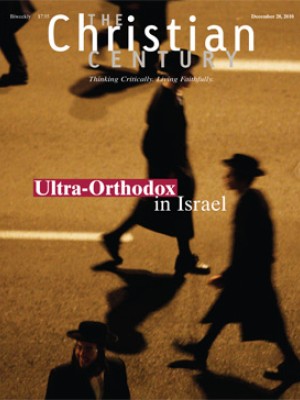Muslims say respect is key to better relations
About half of Muslims surveyed worldwide believe that the West does
not respect them, according to a new Gallup report, and many say not
desecrating the Qur'an and portraying more "accurate" Muslim movie
characters could improve a strained relationship.
The findings are
part of a report, "Measuring the State of Muslim-West Relations,"
released December 1 at Gallup's Washington headquarters. The study drew
on interviews with more than 100,000 in more than 55 countries between
March 2008 and May 2010.
Read our latest issue or browse back issues.
"We also found that this concept of
respect . . . now includes perceptions of fairness in policies, not just
culturally sensitive language," said Dalia Mogahed, executive director
of the Gallup Center for Muslim Studies. Fifty-four percent of Muslims
said being treated fairly in policies that directly affect them would be
a very meaningful demonstration of respect.
Mogahed said the
"policies" were not defined in the new report, but past Gallup studies
have found that respondents were particularly concerned about the
Israeli-Palestinian conflict and U.S. wars in Iraq and Afghanistan.
Nearly
three-quarters of Muslims polled said increased respect for the Qur'an
and other religious symbols would be helpful. About half want to see
Muslims portrayed more accurately by Hollywood.
Researchers found
people across the globe—from the United States to sub-Saharan
Africa—believe that the tensions between Muslim countries and the West
are mostly avoidable.
In most of the countries surveyed, people
said greater interaction between Muslims and the West is a benefit
rather than a threat. In the U.S., 76 percent of individuals saw such
interaction as beneficial, compared to 63 percent of Iranians.
Gallup
researchers classified individuals as being "ready" or "not ready" for
Muslim-Western engagement on the basis of their attitudes about
commitment to such relations, as well as perceptions of respect and of
future conflict.
Researchers said religion plays a key role in
readiness. "For 'Not Ready' individuals, irrespective of whether they
live in majority-Muslim or Western societies, religion is the factor
most likely to be cited as being at the root of Muslim-Western
tensions," the report stated in its executive summary.
The report
detected a religious paradox between the two sides: people in
majority-Muslim societies who were considered "ready" and those in the
West who were "not ready" were both more likely to have attended
religious services in the past week. —RNS






